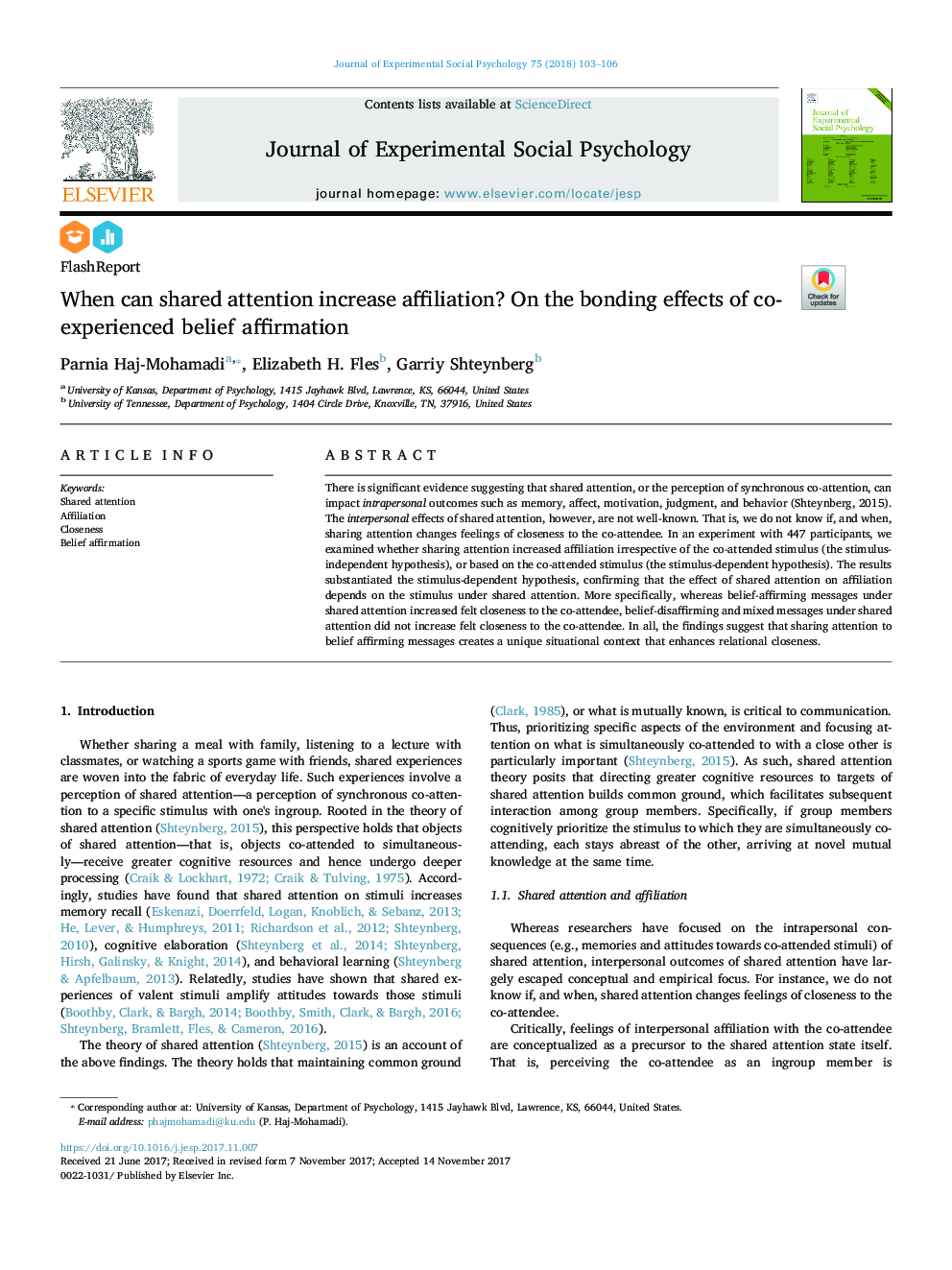| Article ID | Journal | Published Year | Pages | File Type |
|---|---|---|---|---|
| 7324248 | Journal of Experimental Social Psychology | 2018 | 4 Pages |
Abstract
There is significant evidence suggesting that shared attention, or the perception of synchronous co-attention, can impact intrapersonal outcomes such as memory, affect, motivation, judgment, and behavior (Shteynberg, 2015). The interpersonal effects of shared attention, however, are not well-known. That is, we do not know if, and when, sharing attention changes feelings of closeness to the co-attendee. In an experiment with 447 participants, we examined whether sharing attention increased affiliation irrespective of the co-attended stimulus (the stimulus-independent hypothesis), or based on the co-attended stimulus (the stimulus-dependent hypothesis). The results substantiated the stimulus-dependent hypothesis, confirming that the effect of shared attention on affiliation depends on the stimulus under shared attention. More specifically, whereas belief-affirming messages under shared attention increased felt closeness to the co-attendee, belief-disaffirming and mixed messages under shared attention did not increase felt closeness to the co-attendee. In all, the findings suggest that sharing attention to belief affirming messages creates a unique situational context that enhances relational closeness.
Keywords
Related Topics
Life Sciences
Neuroscience
Behavioral Neuroscience
Authors
Parnia Haj-Mohamadi, Elizabeth H. Fles, Garriy Shteynberg,
